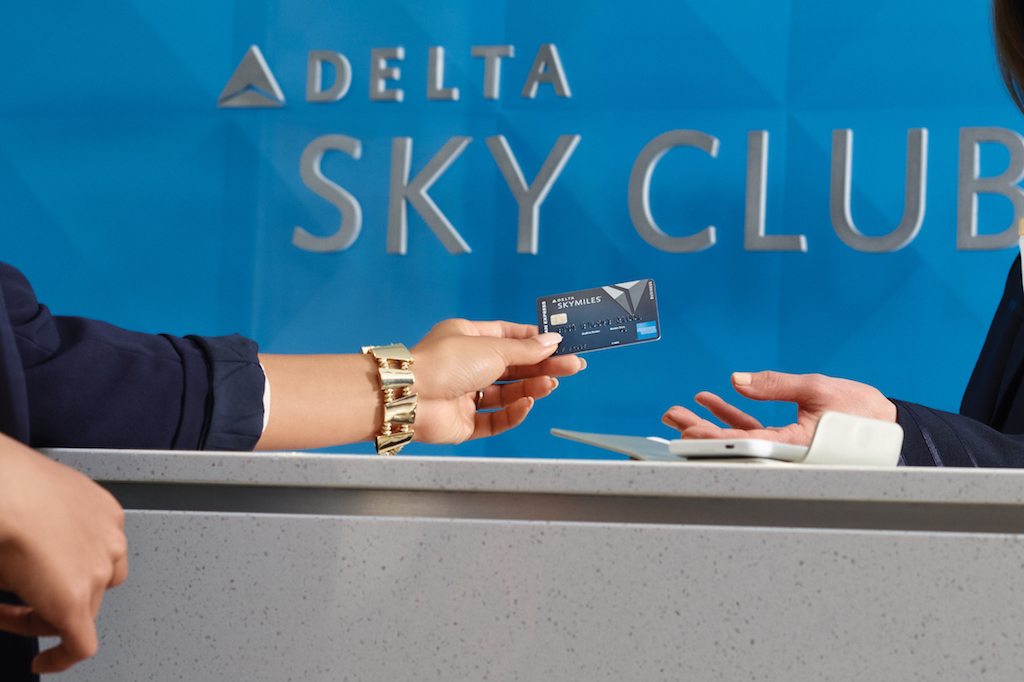Skift Take
Delta argues recent changes to its frequent flyer program have helped improved loyalty, but not everyone is so sure. What they almost certainly have done, however, is improve profitability.
Awarding frequent flyer miles to customers based on how far they flew was a relic of a prior era and no longer appropriate, the CFO of Delta Air Lines told investment analysts this week.
But though Delta’s program now gives fewer miles to many passengers, the change has helped the airline win loyalty from customers who matter, Delta’s Paul Jacobsen argued Thursday at the Bank of America Merrill Lynch 2017 Transportation Conference.
“I think loyalty really took off when we ultimately made the conversion away from miles-based program to a dollar-based program,” he said. “The miles-based program was an antiquity out of deregulation and really didn’t have a practical application in a world where pricing is set … irrespective of distance.”
Delta was the first legacy U.S. airline to move to a revenue-based model, adopting it in 2015. Some high-spending business travelers earn more miles, but most passengers earn far fewer. American Airlines and United Airlines now have similar policies, which are similar to how Southwest Airlines and JetBlue Airways have long awarded miles. Among major U.S. carriers, only Alaska Airlines has kept the old approach, with its executives betting they can win new customers by keeping a generous loyalty program.
It was an obvious decision for Delta, Jacobsen said, because it keeps the airline from awarding too many miles to customers who fly long distances but do not create much revenue for the airline. Now, he said, Delta is less worried about how customers redeem miles, because travelers who have earned them are valuable for the company.
“We can get into different options for our customers where from a revenue perspective we truly are indifferent, whether someone spends a dollar or a mile,” he said. “We know what the cost is, and we know what the whole pool looks like versus somebody who gets the same amount of miles when they pay 10 percent of the ticket cost that somebody else did,” he said.
Not everyone believes Delta
The assertion that Delta’s changes have improved loyalty may come as a surprise to bloggers who follow the airline closely. Several have been critical of Delta, not so much for changing how customers earn miles, but for raising prices for popular redemptions. Often, the bloggers say, Delta raises prices without notice or explanation.
In an April post, Gary Leff of ViewFromTheWing, wrote that “Delta devalues more often than Argentina” after he said it “massively” increased the cost of any awards on its partner airlines.
“The biggest problem SkyMiles faces is their trust deficit,” Leff wrote. “You don’t get information to understand what miles are worth, and when they make changes Delta doesn’t play straight with what they’re doing with your miles or how that will affect you.”
He’s not the only blogger with this opinion. Ben Schlappig, who writes OneMileataTime, wrote a similar post the same week.
“What a crappy thing for Delta to do,” he said. “They’ve had award price increase after award price increase, but this is the most drastic one yet, as it seems to impact the cost of travel on all partner airlines.”
Bloggers have also criticized Delta for pushing customers to make redemptions for items other than airfare, like champagne in a lounge, or upgrades to premium economy. But they argue customers receive far less value if they redeem for anything except airfare. A bottle of Dom Perignon in the lounge might be free for a frequent flyer, they say, but because Delta sets the prices in miles, it’s rarely a good deal.
“They are trying to create the perfect company town,” Leff said. “They pay out SkyMiles, and then set the prices of goods in their company-owned store. And here’s the thing, they have a monopoly in this town.”
At the investor conference, Jacobsen addressed the issue, arguing giving customers non-airfare redemption options makes customers more loyal. He also said it makes the program more valuable to American Express, Delta’s credit card partner. Delta expects the American Express relationship to produce $3 billion in revenue this year, and $4 billion by 2021.
“Whether it’s buying drinks in the Sky Club, whether it’s using miles to upgrade across our different branded fares initiatives, etc. — that’s providing a lot more value,” he said.
Airlines do not share much about the value of their frequent flyer programs, but in April, analyst Joe DeNardi of Stifel estimated Delta’s was worth $33.1 billion, second most in the U.S. industry, behind American Airlines’ $37.6 billion.
The Daily Newsletter
Our daily coverage of the global travel industry. Written by editors and analysts from across Skift’s brands.
Have a confidential tip for Skift? Get in touch
Tags: delta air lines, frequent flyer programs, loyalty, skymiles
Photo credit: Delta Air Lines has reworked how it thinks about SkyMiles and programs including products like the Delta Reserve Business AMEX credit card. The airline's CFO said they helps make customers more loyal. Delta Air Lines
